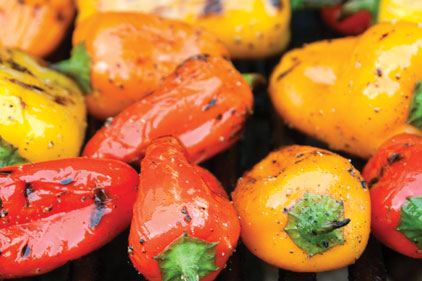Two independent studies found more beneficial nutrients in everything from frozen broccoli florets and carrots to blueberries.
In two out of three cases, frozen fruit and vegetables scored better on antioxidant-type compounds -- including vitamin C, polyphenols, anthocyanins, lutein and beta-carotene. Consumption of these antioxidant compounds is considered beneficial in preventing cancer and supporting the working of the body, brain, skin and eyes.
Produce bought from the supermarket greengrocer section is full of color and crunch, while many stores even use fine mist sprays to give a "just picked" look. This supermarket theatre convincers shoppers to pay a premium for food they believe is good for their family’s health as well as being tasty.
However, the reality is that these vegetables and fruit may well have been held in storage for a month, while they then sit in the fridge at home for days before being eaten. Over the days, they gradually deteriorate, slowing losing some of the nutrients associated with leafy greens and fruit.
By contrast, vegetables and fruit sold in the frozen cabinets are chilled soon after harvest and so retain higher levels of vitamins and antioxidants until they are eaten.
Two teams, one from Leatherhead Food Research and another from the University of Chester, carried out 40 tests to measure nutrient levels in produce which had been sitting in a fridge for three days versus the frozen equivalent.
The findings demonstrate that eating newly picked produce is the healthiest option, however frozen can be almost as good and is often better that items sold as "fresh."
Leatherhead’s Dr Rachel Burch, said, "We must disregard the mistaken opinion that ‘fresh’ food is always better for us than frozen food.
"These results demonstrate that frozen can be nutritionally comparable to ‘fresh’ produce."
Her team found frozen broccoli had higher levels of vitamin C, lutein and four times more beta-carotene. However, fresh scored better on polyphenols, which are thought to help prevent cancer.
Frozen carrots had three times the lutein and double the beta-carotene, while they were also higher in vtamin C and polyphenols.
Frozen sprouts scored higher on all nutrient measurements; however, fresh spinach did better than frozen in some tests.
The Chester study found levels of vitamin C and polyphenols were much higher in frozen blueberries and green beans. The frozen blueberries also had more polyphenols and anthocyanins.
The figures in raspberries and peas were around the same, while there was no clear winner for cauliflower and baby sweetcorn.
Professor Graham Bonwick, of the University of Chester, said, "Unlike frozen, some fresh produce concentrations of antioxidant compounds exhibited a decrease during refrigerated storage to levels below those observed in the corresponding frozen produce. The effects were most noticeable in soft fruits."
While the studies were independent, they were funded by the British Frozen Food Association, which speaks for producers.
Its director general, Brian Young, said, "Fast and highly organized methods of ‘harvest-to-freeze’ have evolved with the express purpose of minimising nutrient losses.
"In contrast, ‘fresh’ food has been shown to spend up to a month in the chain of producers, wholesalers and retailers before consumers have access to store and prepare them.
"During this time we know that product deterioration takes place - to the extent that they can have lower nutritional value than their frozen equivalent."
